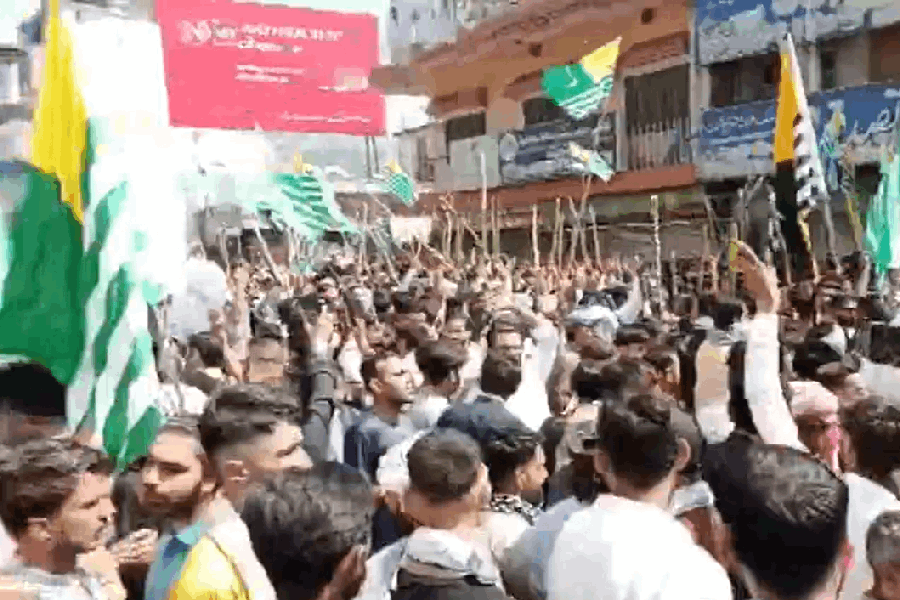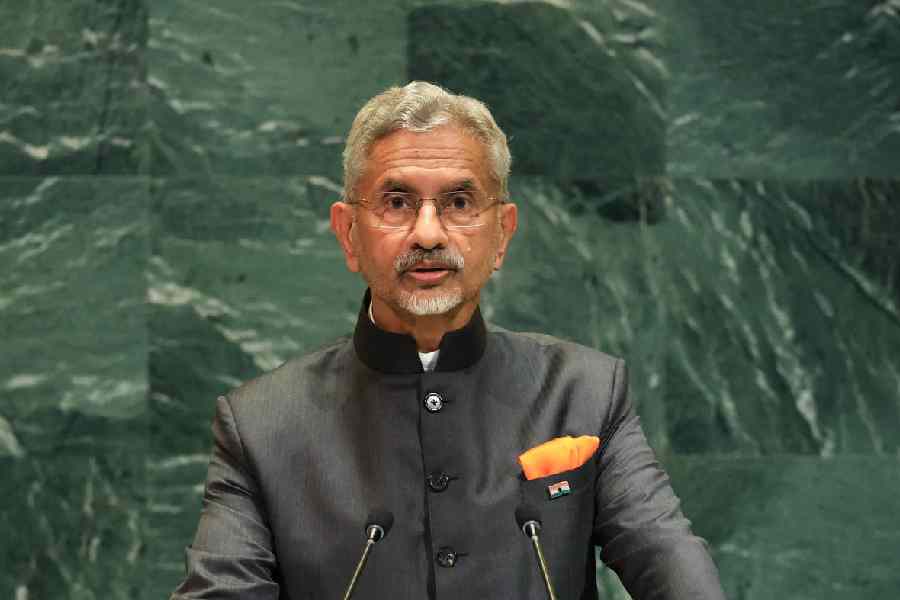Pakistan-occupied Kashmir (PoK) plunged into unrest as the Awami Action Committee (AAC) launched demonstrations on Monday, calling for a “shutter-down” and “wheel-jam" strike that threatens to continue indefinitely.
The protests, reportedly the largest in recent history, have prompted Islamabad to deploy heavy security and cut internet access across the region in a bid to curb mobilisation.
The AAC, which has steadily gained influence in recent months, is demanding far-reaching political and economic reforms.
Central to its 38-point charter is the abolition of 12 seats in the PoK legislative assembly reserved for Kashmiri refugees living in Pakistan.
Protesters argue that these seats weaken local representation. Other demands include subsidised flour, equitable electricity tariffs linked to the Mangla hydropower project, and the implementation of reforms promised long ago by Islamabad.
“Our campaign is not against any institution but for the fundamental rights denied to our people for over 70 years,” AAC leader Shaukat Nawaz Mir told demonstrators in Muzaffarabad.
He warned that the people’s patience had run out, saying, “Enough is enough. Either deliver on rights or face the wrath of the people.”
The government has reacted with extensive security measures. In recent days, heavily armed convoys conducted flag marches through major towns, while police sealed entry and exit points to key cities.
Surveillance around sensitive installations has also been tightened. Thousands of additional troops from Punjab province have been deployed, along with 1,000 police personnel dispatched from Islamabad.
Officials maintain that the measures are necessary to preserve public order. “Peace is the collective responsibility of citizens and the administration,” District Magistrate Mudasser Farooq told The Dawn, cautioning against any disruption of daily life.
The security build-up follows the collapse of marathon negotiations between AAC representatives, the PoK administration, and federal ministers. The 13-hour talks ended without agreement after the committee refused to compromise on abolishing refugee assembly seats and curbing privileges for political elites.
Mir described the discussions as “incomplete and inconclusive,” vowing to continue the agitation.
In anticipation of the strike, traders in Muzaffarabad opened shops on Sunday to allow residents to stockpile food and essential goods.
Videos circulating on social media showed convoys of security forces streaming into the city, sparking speculation of an imminent crackdown.
Citizens were also heard raising slogans calling for freedom from Pakistan’s control.
Despite these preparations, AAC leaders have pledged to maintain peaceful protests. With internet services shut down at midnight to curb mobilisation and both sides unwilling to make concessions, the coming days are expected to test the balance of power in PoK’s decades-long struggle for political rights.











